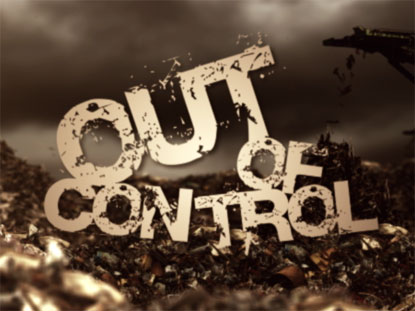Out of Control Teens
It’s a fairly natural process: Many teenagers rebel against their parents in some way. They also become moody and difficult in some cases. This is because teenagers are still developing, and the teen years represent some of the most rapid changes that the body goes through once beyond early childhood. On top of that, teenagers are experiencing a new range of emotions and urges as their hormones become active. There is a lot for teens to deal with as they grow up, and this can lead to some conflict in the home. However, occasional arguments and some moodiness and a degree of rebellion are all normal. What isn’t normal, though, is an out of control teen that becomes regularly violent and willfully and consciously defiant at every turn.
Signs that you have an out of control teen (or defiant, struggling, rebellious teen)
There are signs that you might have an out of control teen on your hands. An out of control teen or troubled teen persists regularly and often in the following behaviors for at least six months:
- Constantly losing one’s temper.
- Regularly arguing with adults.
- Defying requests actively and often.
- Refusing to follow rules.
- Trying to deliberately annoy others.
- Constantly blaming other people for their misbehavior, poor choices or mistakes.
- Showing spitefulness and vindictiveness regularly.
- Being very touchy and easily angered.
Many of these teenagers are very stubborn and continually push the boundaries. While there is a certain amount of testing with all teenagers, an out of control teen pushes the limits on everything, and is actively defiant about his or her behavior. An out of control teen shows no remorse for behavior that negatively affects friends and family, and shows aggression, rather than the normal teenage moodiness and occasional rule breaking.
Risk factors for an out of control teen
There are different reasons that a struggling teen might spiral out of control. Some risk factors have to do with genetic disposition, and others have to do with environment. And some are due to the influence of peer pressure. Some of the things that can influence whether or not a teen develops out of control behaviors and habits include:
- Favorable attitude of parents toward rebellious behavior.
- Conflict in the family and/or witness family violence.
- Friends who abuse substances or engage in delinquent behavior.
- Rejection by peers.
- Family history of mental disorders, addiction or problem behavior.
- Traumatic experiences in childhood.
Current family stresses can also cause out of control teen behavior. Financial stress, divorce, inconsistency in parenting techniques, very punitive practices in the family and severe illness or other family challenges can all result in a situation that a teenager finds difficult to deal with. This can in turn result in problem behavior as the teen looks for an outlet.
Another factor is a desire to be accepted. Some struggling teenagers develop out of control and problem behaviors as they attempt to be accepted by their peers. They might engage in substance abuse, illegal behaviors and other actions in order to find acceptance. These acts can, in turn, lead to destructive behaviors that can cause problems for the family, as well as for the teenager. In some cases, out of control teens develop violent tendencies that can threaten younger family members.
Helping to head off an out of control or defiant teen
There are some different things you can try in order to attempt to head off an out of control teen. You want to be able to help your struggling teenager cope with the challenges being presented, if possible. Some of the things that can help keep a teenager away from out of control behavior include:
- Family counseling. (Individual counseling may be needed as well.)
- Learning techniques for providing consistent parenting.
- Creating a loving home environment.
- Showing interest in your child’s activities.
- Talking about your expectations of ethical and moral behavior.
- Listening to your teen and communicating regularly with him or her.
- Encouraging teenagers to participate in healthy extracurricular activities.
- Meeting your kids’ friends, and their parents.
- Remaining the adult – and the parent – even when sometimes you’d rather be “cool.”
- Avoiding arguments and trying to reason with your teenager when she or he is upset. Acknowledge a teen’s position without condoning it.
- Pick your battles. Don’t judge everything your teen says, does or listens to. Look for the important things, and don’t get too fussed about unimportant matters.
In the end, your response to the situation can be important. If you show that you are supportive and want to help, this can be a way to rein in an out of control teen. However, there might times when nothing works, and you have no choice but to send a teen away for the good of the family. We have many options for these situations.
